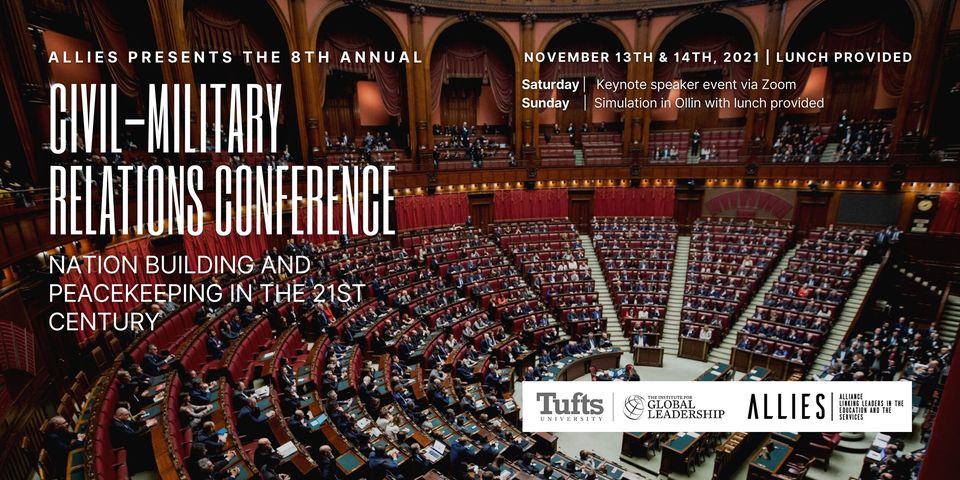Nation-Building and Peacekeeping in the 21st Century
2021 ALLIES Civil-Military Relations Conference
November 13-14, 2021

Saturday, November 13 (virtual)
10:00am
Check out our blog post here!
Susan L. Woodward is professor of political science at The Graduate Center of the City University of New York. A specialist on the Balkans, her current research focuses on transitions from civil war to peace, international security and state failure, and post-war state-building.
She was a member of the United Nations Committee of Experts on Public Administration, 2010-14, a senior fellow at The Brookings Institution in Washington, D.C., 1990-99, and then at the Centre for Defence Studies, King’s College, London, 1999-2000, head of the Analysis and Assessment Unit for UNPROFOR in 1994, and a professor of political science at Yale University, 1982-89, Williams College, 1978-82, and Northwestern University, 1972-77.
Her many writings include The Ideology of Failed States: Why Intervention Fails; Balkan Tragedy: Chaos and Dissolution after the Cold War; and Socialist Unemployment: The Political Economy of Yugoslavia, 1945-90.
11:30am
Panel 1: Modern Humanitarian Efforts and Peacekeeping Operations
Doug Brooks is the Special Adviser for Response Business Practices at the Fund For Peace (FFP). He leads FFP’s responsible business practice, including implementation of security and human right projects in partnership with natural resource companies, governments, and multilateral institutions. He also represents FFP at the international level of the VPSHR and coordinates FFP’s Human Rights and Business Roundtable. Prior to joining the FFP, he was founder and President of the International Peace Operations Association (now the International Stability Operations Association). He also serves as Adjunct Faculty for the University of Fiji.
1:30pm
Panel 2: Rebuilding Nations and Economies
Aila M. Matanock is associate professor of political science at the University of California, Berkeley. Her research examines a variety of international and domestic influences on the stability of fragile states, especially elections in these contexts, bringing together insights from international relations and comparative politics, as well as policing and community attitudes during crisis. She seeks to better understand how different actors can foster peace and improve governance outcomes. She is the author of Electing Peace: From Civil Conflict to Political Participation. She was a W. Glenn Campbell and Rita Ricardo-Campbell National Fellow and the Arch W. Shaw National Fellow at the Hoover Institution at Stanford University (2015-2016), a postdoctoral scholar at the Institute on Global Conflict and Cooperation (IGCC) at the University of California, San Diego (2012-2013), and a predoctoral fellow at the Center for International Security and Cooperation (CISAC) (2010-2012). She previously worked at the RAND Corporation. Stergios Skaperdas is professor of economics and holds the Clifford S. Heinz Chair (on the economics of peace) at the University of California, Irvine. In July 2016, he was appointed director of the Center for Global Peace and Conflict Studies. With the basic trade-off between production and appropriation at its core, Skaperdas has developed a theoretical framework that allows the study of a variety of economic and political problems, including those of organized crime, the emergence of states and governance, civil wars, and other forms of domestic conflict, as well as the effects of globalization in the presence of insecurity. His research has been published in a variety of economics and political science journals, including the American Economic Review, the American Political Science Review, Economic Journal, the Journal of Conflict Resolution, the Journal of Economic Theory, and the Journal of International Economics.
Sunday, November 14 (in-person)
Interactive Crisis Simulation
Olin, 1st floor